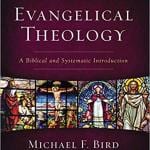Susan J. Wendel and David M. Miller (eds).
Torah Ethics and Early Christian Identity.
Grand Rapids: Eerdmans, 2016.
Available at Amazon.com
Review by Dr. Jill Firth
Torah Ethics and Early Christian Identity addresses a central question: ‘in what ways did the Mosaic law continue to serve as a positive reference point for Christ-believers regardless of whether they thought Torah observance was essential?’ To honour the work of Stephen Westerholm, Wendel and Miller gathered a stellar line up of experts alongside Westerholm’s colleagues and former students, to engage the influence of the Torah on the theology and ethical practice of early believers, and to consider implications for today.
The first section sets the scene with essays on torah observance in first century synagogues (Anders Runesson), and the law in Philo and Josephus (John W. Martens). The centre of the book engages New Testament texts, Matthew (Wesley G. Olmstead), Mark (S.A. Cummins), Acts (David M. Miller), John 11. 1–44 (Adele Reinhartz), James (Scot McKnight), Romans 10.4 (Beverley Roberts Gaventa), Gentile ‘offspring’ (Terence L. Donaldson), and 1 Corinthians (Richard B. Hays). The final section offers Christian reflection on Torah from Justin Martyr (Susan J. Wendel) and Clement (Peter Widdicombe) and concludes with an essay by Stephen Westerholm on ‘Canonical Paul and the Law.’
In ‘The Law of the Laws: James, Wisdom and the Law’, Scot McKnight invites us to read the scriptures ‘at the feet of Jesus’. In this essay, he focuses on the quotation of Leviticus 19:18 in James 2:8, ‘You shall love your neighbour as yourself.’ Firstly, he contends that for James, ‘λόγος is νόμος’. He then argues that James views the Torah through Jesus’ love ethic of loving God and neighbour. In James 2:18–19, where the imagined interlocutor asserts, ‘You have faith, and I have works’, James refers to the Shema ‘You believe that God is one’, and invites him into neighbour-loving actions. Rather than seeing Jesus as a new Mosaic lawgiver, McKnight locates James’ attitude to Jesus in the wisdom genre: ‘James did not (simply) treat the words of Moses or Jesus as halakah but as hokmah, not simply as “law and ruling” but as “wisdom.”
In ‘Questions about Nomos, Answers about Christos: Romans 10:4 in Context’, Beverley Roberts Gaventa tackles Romans 10:4, ‘Christ is the τέλος of the law.’ Using the image of driving a car, Gaventa pictures interpreters of τέλος firstly revving the interpretive engine for a forward dash and then trying to reverse, but finding that neither advances clarity. She proposes that the context in Romans 9:30–10:13 dethrones νόμος ‘as the or even a defining element in God’s dealings with Israel post-Χριστὸς.’ However we translate τέλος, ‘the questions the text raises about νόμος are answered with Χριστὸς.’ Gaventa’s essay concerns only Romans, considers the Judaism of Paul’s time, and does not enter any debate on supersessionism. She sets the scene in considering the account of the law in Romans 1–8 before examining Romans 9:30–10:13. She concludes that Paul’s argument on the law is ‘oblique’ in Romans, and that he tells it ‘“slant.”’ In Romans 1–8, the law is good, but conscripted by sin. In Romans 9–11, God’s relationship to Israel is depicted without reference to Mosaic law.
These and the other essays in the volume bring rich and varied insights to the role of Torah for the early Christians. It will be valued by scholars, teachers and students of New Testament and early Christianity.
The book includes a Bibliography, author index, subject index, and Scripture and other ancient literature index.
Jill Firth is a Lecturer in Hebrew and Old Testament at Ridley College in Melbourne. Her current research is in Psalms and Jeremiah.












